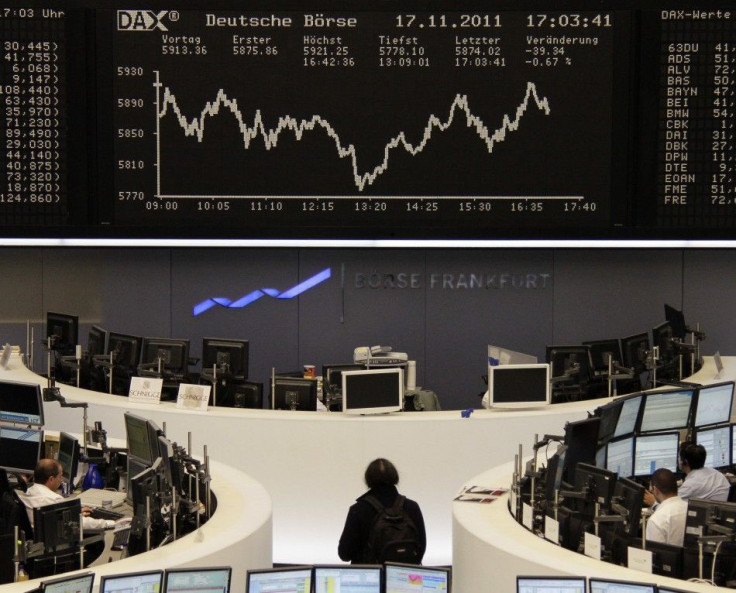Europe's Markets Higher Thursday at Mid-Day in Thin, Near-Holiday Trading

(Reuters) - European shares were higher early Thursday afternoon in low volume that exaggerated movements, with investors hoping a batch of U.S. data would confirm an improving economic picture.
Investors were betting final U.S. third-quarter GDP and U.S. weekly jobless claims at 1330 GMT would show signs of growth in the economy following solid U.S. housing starts on Tuesday.
Miners and oils, which perform well when economic growth is strong, were among the main movers, with the STOXX Europe 600 Basic Resources index and the STOXX Europe 600 Oil & Gas index both up 1.9 percent.
If there is one potential upside for the market it is the United States, Mike Lenhoff, chief strategist at Brewin Dolphin, said. The U.S. economy impacts global growth so much and positive data means better earnings outlook for companies.
The recent data out of the United States shows the country has been gathering pace and if the data looks to be improving we could rally.
Standard Life Investments said it had an overweight stance on the United States as its economy was performing better and was underweight Europe due to the ongoing worries about the euro zone debt crisis.
By 1219 GMT, the pan-European FTSEurofirst 300 index of top shares was up 1 percent at 981.41 points, but volume was low at only 22.4 percent of its 90-day daily average.
The index was in a trading range, with the 38.2 percent Fibonacci Retracement from its November to December rally at 961.45 acting as support, while the 23.6 percent Fibonacci Retracement at 987.07 acted as a resistance.
BANKS GAINS
Banks were also among the top movers, with the STOXX Europe 600 Banks index up 1.3 percent, as traders reassessed Wednesday's falls following the European Central Bank tender of cheap loans to the sector.
Short-term investors said the cheap money would help ease the funding strains for banks, but warned there was still a worry about why so many firms took up the loans and what that meant for the long-term stability of the sector.
The banking index is still down 32.9 percent for the year due to concerns about the sector's exposure to the region's debt.
The operations of the ECB to some extent take away the possibility of a liquidity crunch and this is why equities are moving up a little, said Richard Batty, strategist at Standard Life Investments, part of the Standard Life Group which administers $303.32 billion of assets.
But equities will remain volatile and we do not think this is a full solution. There are some questions about the extent of liquidity requirements for banks and how much more money is needed.
- -
© Copyright Thomson Reuters 2024. All rights reserved.





















